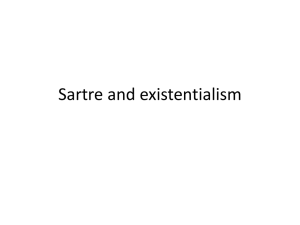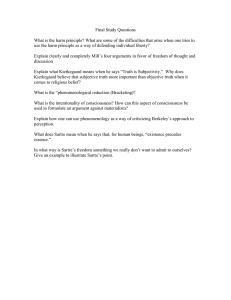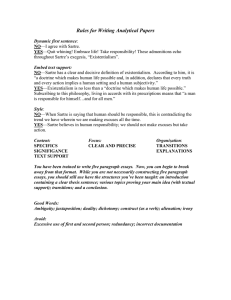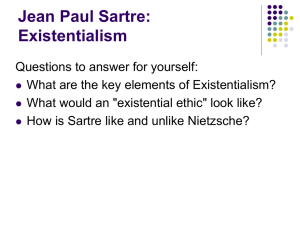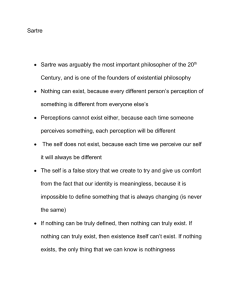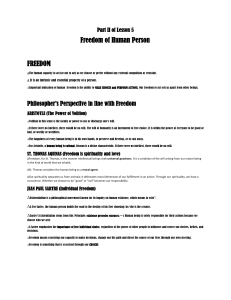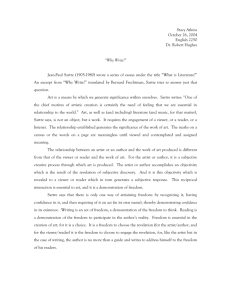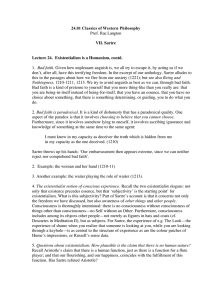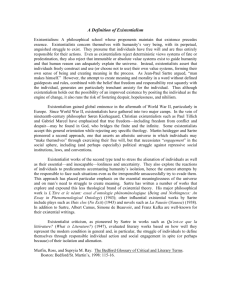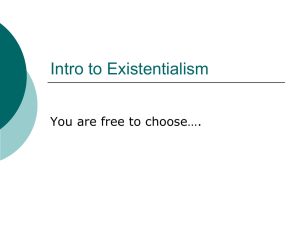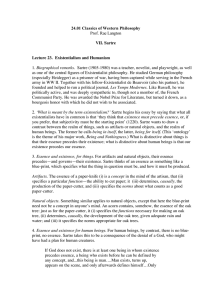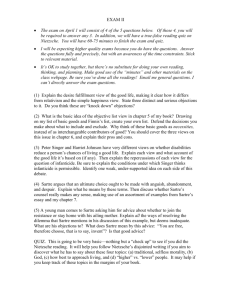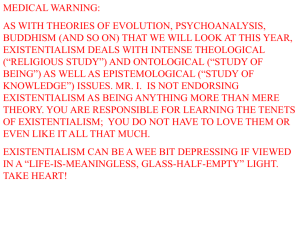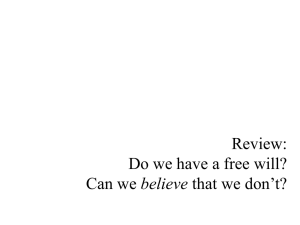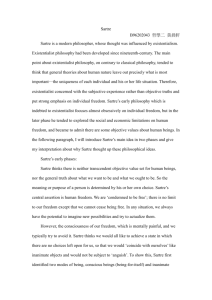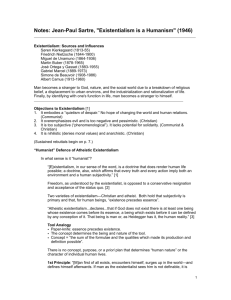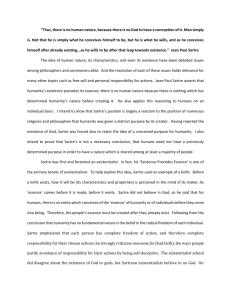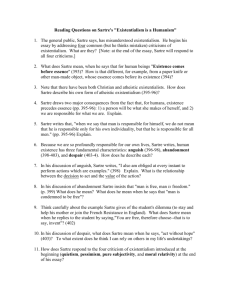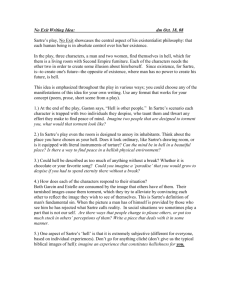Jean Paul Sartre
advertisement
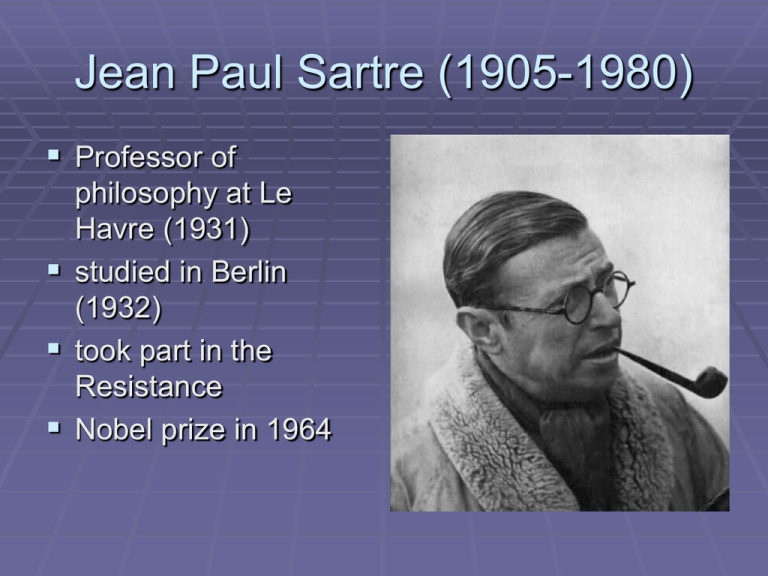
Jean Paul Sartre (1905-1980) Professor of philosophy at Le Havre (1931) studied in Berlin (1932) took part in the Resistance Nobel prize in 1964 Some important works: Nausea (1938) The Wall and Other Stories (1939) Being and Nothingness (1943) The Flies (1943) Existentialism Is a Humanism (1946) No Exit (1947) What Is Literature? (1947) The Wall (1939) “the best introduction to the heart of Sartre’s thought” (Kaufmann). contains central existentialist motif: confrontation with death solitary hero compelled to choose values that define what it means to be a human being Sartre “felt the need to assert the individual´s freedom in the face of an increasingly totalitarian world situation” (Pitts). Other important themes: an absurd world man’s highest value: integrity all men are free need to choose our own values creative freedom as law unto itself existence precedes and governs essence essence is a succession of choices other themes? Some questions to discuss in groups: 1. 2. 3. 4. 5. 6. What does Pablo’s intention to “die decently”/cleanly mean? What does it mean that Pablo thinks his life is “only a sketch”? Why are love, frienship, political cause all emptied of meaning? What does it mean that they are? Why does he refuse to betray Ramón Gris? How do you interpret the ending? What does the wall symbolize?

